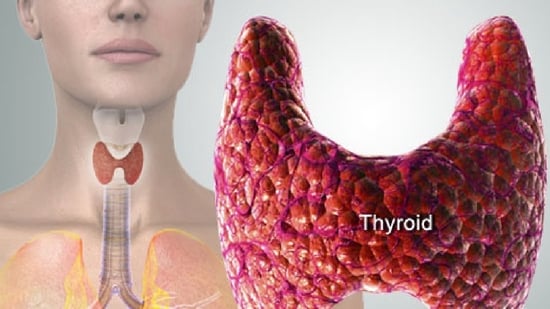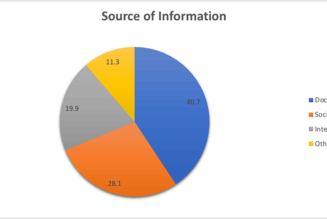Published on Sep 08, 2023 07:32 AM IST
Here are some of the common tests that can help identify potential causes of weight gain despite eating healthy.
/

View Photos in a new improved layout
Published on Sep 08, 2023 07:32 AM IST
Weight gain can be a perplexing issue, especially when it occurs despite following a healthy diet. While a balanced and nutritious diet is essential for overall well-being, there can be various underlying medical conditions that contribute to unexplained weight gain. In an interview with Zarafshan Shiraz of HT Lifestyle, Dr Rajesh Bendre, Chief of Lab at Neuberg Diagnostics, revealed some of the common tests that can help identify potential causes of weight gain despite eating healthy – (Unsplash)
/

View Photos in a new improved layout
Published on Sep 08, 2023 07:32 AM IST
1. Thyroid Function Tests: The thyroid gland plays a crucial role in regulating metabolism. If the thyroid gland is underactive (hypothyroidism), it can lead to a slow metabolism, making it easier to gain weight. Despite eating healthy, individuals with hypothyroidism may struggle to lose weight or even experience weight gain. Thyroid function tests, such as TSH (Thyroid Stimulating Hormone) and T4 (thyroxine) levels, can help assess the thyroid’s functioning and identify any issues that may be contributing to weight changes. (Twitter/WebMD)
/

View Photos in a new improved layout
Published on Sep 08, 2023 07:32 AM IST
2. Insulin Resistance and Glucose Tolerance Test: Insulin resistance occurs when cells in the body become less responsive to insulin, leading to elevated blood sugar levels. This condition can promote fat storage and hinder weight loss efforts, even with a healthy diet. A glucose tolerance test can determine how the body responds to glucose intake and assess insulin sensitivity. Identifying insulin resistance can help in the early management and prevention of weight gain. (Shutterstock)
/

View Photos in a new improved layout
Published on Sep 08, 2023 07:32 AM IST
3. Hormone Panel: Hormones play a vital role in regulating various bodily functions, including metabolism and appetite. Imbalances in hormones like cortisol, leptin, ghrelin, and sex hormones (estrogen, progesterone, testosterone) can influence weight gain and fat distribution. A comprehensive hormone panel can provide valuable insights into any hormonal imbalances that may be contributing to weight gain despite eating healthily. (Shutterstock)
/

View Photos in a new improved layout
Published on Sep 08, 2023 07:32 AM IST
4. Food Sensitivity Testing: In some cases, weight gain may be linked to underlying food sensitivities or intolerances. Food sensitivities can trigger inflammation and water retention, leading to temporary weight gain. While healthy foods may not directly cause weight gain, a person may unknowingly consume foods to which they are sensitive. Identifying and eliminating these trigger foods from the diet can lead to weight loss and improved well-being. (File/AFP)
/

View Photos in a new improved layout
Published on Sep 08, 2023 07:32 AM IST
5. Gut Health Evaluation: The gut microbiome plays a critical role in digestion, nutrient absorption, and metabolism. Imbalances in gut bacteria can influence weight gain and impact overall health. Tests that analyze the composition of gut bacteria can provide insights into any dysbiosis or imbalance that may be contributing to weight gain, despite a healthy diet. (Shutterstock)
/

View Photos in a new improved layout
Published on Sep 08, 2023 07:32 AM IST









